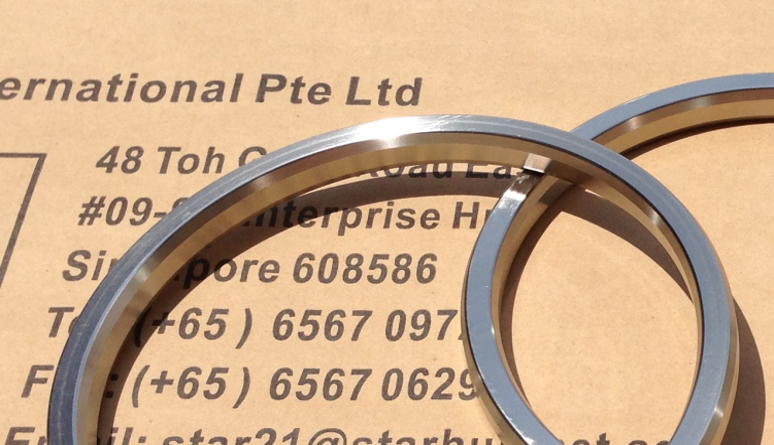Exploring Different Materials Used in Ring-Type Joint Gaskets: Which One is Right for You?
Ring-type joint gaskets (RTJ gaskets) are essential for maintaining the integrity of flanged connections in a variety of industrial applications. These gaskets are built to endure high temperatures, pressures, and corrosive environments, making them essential in the oil and gas, petrochemical, and power generation industries. Choosing the right gasket material is critical for ring-type joint gaskets to work properly. The correct material ensures a reliable seal, preventing leaks and maintaining the connection’s integrity. Different materials have distinct features, applications, and limitations, so engineers and industry professionals must grasp their qualities and select the best solution for specific circumstances. Let’s take a look at the various types of ring-type joint gasket materials to select what you need.
RTJ Gasket Material Types
- Soft Iron
Soft iron is a popular material for RTJ gaskets due to its flexibility and superior sealing qualities. It conforms effectively to flange surfaces, resulting in a tight seal at high pressures. Soft iron is ideal for low-temperature applications and is commonly used in oil and gas pipelines. However, its susceptibility to corrosion restricts its use in corrosive environments.
- Low Carbon Steel
Low-carbon steel is another commonly used material for RTJ gaskets. It has higher corrosion resistance than soft iron, making it suited for applications with moderately corrosive conditions. Low-carbon steel is well-known for its strength and durability, making it an ideal sealing material for a variety of industrial applications. However, it may not be the best option for extremely corrosive situations.
- Stainless Steel
Stainless steel RTJ gaskets are frequently used in applications where corrosion resistance is required. Stainless steel has exceptional rust and corrosion resistance due to its chromium concentration, making it suited for severe conditions such as chemical and marine applications. Stainless steel RTJ gaskets are available in a variety of grades, providing a flexible option for a variety of operating conditions.
- Inconel
Inconel is a high-performance material that functions well under extreme temperature and pressure conditions. Inconel RTJ gaskets are known for their remarkable strength and resistance to oxidation and corrosion, making them ideal for applications that involve harsh chemicals and high-temperature gases. Inconel’s exceptional characteristics make it a popular choice in demanding industrial environments such as aerospace and nuclear applications.
- Titanium
Titanium RTJ gaskets are suitable for applications requiring lightweight, corrosion-resistant materials. They find use in the aerospace, marine, and chemical industries where both strength and corrosion resistance are essential.
- Non-Metallic Materials
Non-metallic materials such as graphite or PTFE (polytetrafluoroethylene) are used in areas where metal gaskets are not practical. These materials are very chemically resistant and can withstand a wide variety of temperatures. Non-metallic RTJ gaskets are widely utilized in the pharmaceutical, food processing, and semiconductor sectors, where contamination and chemical compatibility are essential concerns.
Premium RTJ Gaskets For Unmatched Industrial Performance From Star 21 International
Selecting the right material for ring-type joint gaskets is crucial for ensuring the reliability and longevity of flanged connections. As a leading provider of high-quality gaskets, Star 21 offers a range of RTJ gaskets providing reliable sealing solutions for diverse industrial needs. Whether it’s rubber steel, graphite seal or spiral wound gaskets, Star 21 gaskets are engineered to meet the highest standards. Invest in the performance and durability of Star 21 ring-type joint gaskets to ensure leak-free and secure connections in your critical industrial applications.


LEAVE A COMMENT